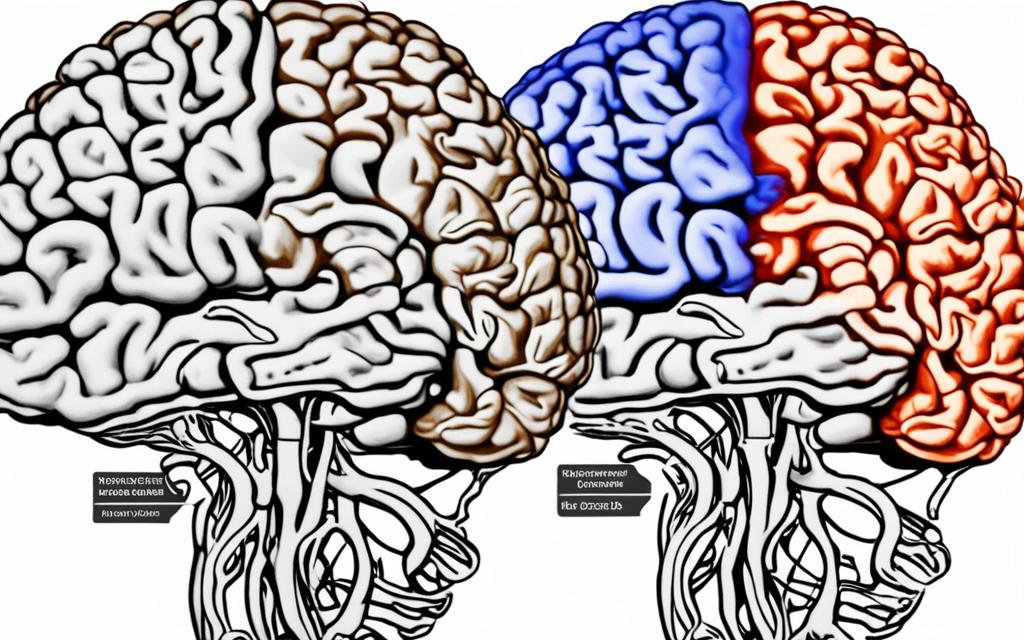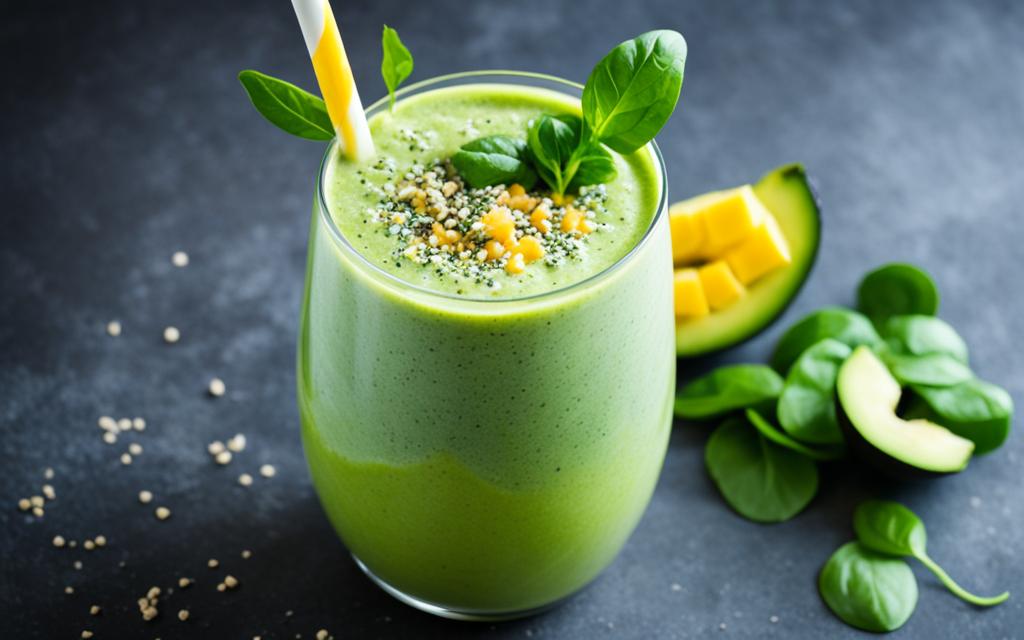Is Drinking Coffee Good for Health? Benefits and Risks

Is Drinking Coffee Good for Health? We, as Americans, truly enjoy our coffee. Every day, we consume a whopping 400 million cups1! But, is this beloved brew really beneficial for our well-being?
The latest studies say yes. They point to several unexpected advantages of moderate daily coffee intake. These include lower type 2 diabetes risk and possibly reduced chances of getting Parkinson’s disease and some cancers123.
Yet, sipping on that morning Joe comes with a few downsides. It can spike your blood pressure temporarily and raise your cholesterol2. For pregnant women, being mindful of how much coffee they drink is essential.
The question becomes, how do we savor coffee’s good effects while sidestepping its downsides? The answer lies in adopting moderate and health-conscious coffee habits.
Health professionals suggest having 2-5 cups of coffee daily. They also recommend using a paper filter when brewing to lessen the effect on cholesterol2.
Cutting back on cream, sugar, and those high-calorie coffee concoctions helps, too. It’s all about finding the right balance. By doing so, we can transform our coffee drinking into something that cheers us and, perhaps, aids our health.
Coffee and Health: An Overview
The topic of coffee and its impact on our health has been debated for a long time. Early studies showed that drinking coffee might be risky. But, recent research tells us that for many, having 2-5 cups daily does more good than harm4. This is a big change from what we used to think.
The Debate on Coffee’s Health Effects
Old research warned us about coffee. It said it might lead to heart problems and more4. But, we now know that things like smoking could have been the real issue. Many agree that some daily coffee can fit into a healthy routine4.
Recent Research Findings on Coffee’s Potential Benefits
New studies show that coffee, when drunk moderately, can bring several health boons4. These includes lowered chances of getting type 2 diabetes, Parkinson’s, and some types of cancer. Coffee’s natural compounds, like antioxidants, are believed to be the reason for these perks4.
But, not everyone should drink as much coffee. Pregnant women and people with anxiety need to be careful. Boiled, unfiltered types might impact your cholesterol, and coffee can spike your blood pressure in the short term4.
In general, it seems safe for most people to enjoy coffee moderately4. Yet, if it gives you heartburn or keeps you up at night, reducing how much you drink might help4.
| Potential Benefits of Moderate Coffee Consumption | Potential Risks of Excessive Coffee Consumption |
|---|---|
In conclusion, viewpoints on coffee’s health effects have altered4. While caution is needed for certain groups, most people can benefit from coffee in moderation4. Remember, what’s right for your diet depends on your own health and how food affects you456.
Coffee and Diabetes Risk
Many studies show more coffee might lower your chance of getting type 2 diabetes. One study revealed an 8% rise in blood sugar among type 2 diabetics after having 250 milligrams of caffeine. This was compared to days without caffeine7. It seems caffeine affects how well insulin works, raising insulin after meals for those with type 2 diabetes7.
But, there’s good news too. People with diabetes who drink lots of coffee don’t have higher blood sugar than those who don’t drink coffee. This suggests they might get used to caffeine over time7. Also, coffee’s antioxidants could lower the risk of getting type 2 diabetes by reducing body inflammation7.
Drinking 3 to 4 cups of coffee daily can lessen the risk of type 2 diabetes8. And adding more than one cup per day over four years cut the risk by 11%. On the other hand, cutting down by more than a cup a day meant a 17% greater chance of getting diabetes8.
The substances in coffee, like the antioxidants, magnesium, chromium, and polyphenols boost how well insulin works. This might help with blood sugar control, offering health benefits8. For diabetics, some experts recommend decaf to enjoy those benefits minus the potential issue with insulin8.
Now, a small study found caffeine before working out dropped blood sugar in people with diabetes type 28. Yet, the FDA cautions healthy adults not to go over about 400 mg of caffeine a day. That’s about 4 to 5 cups of coffee. Too much can be harmful8.
Increasing your coffee intake might be good for keeping type 2 diabetes away, suggests research. Still, it’s crucial to watch how much caffeine you have and talk to your doctor. They can help make sure coffee fits well with your health and diabetes care plan9.
Coffee and Parkinson’s Disease
Recent studies show that drinking coffee could help protect you against Parkinson’s disease. This is a serious brain condition. People who drink more coffee tend to have a lower risk of getting Parkinson’s. For example, guys who have four or more cups daily are much less likely to get Parkinson’s. This is compared to guys who don’t drink coffee at all10.
Caffeine, a main ingredient in coffee, seems to be the key to this protection. It helps the brain’s antioxidant enzymes work better. These enzymes fight damage caused by stress and inflammation, which are linked to Parkinson’s11. Caffeine also helps make more dopamine receptors in the brain. This is good for managing Parkinson’s11.
The effect of drinking coffee on Parkinson’s seems to be stronger in men than in women. One research showed that the best risk reduction for women was at 1 to 3 cups a day. But for men, the benefit was clearer12. We’re not sure why there’s a difference between genders. It could have something to do with hormones or other body differences.
But, does caffeine-free coffee still help protect against Parkinson’s? It’s not as clear. Some researchers think other coffee ingredients, like polyphenols, might also be protective12. Still, most experts agree that drinking coffee, with or without caffeine, can lower your Parkinson’s risk. The benefits come from caffeine and other healthy elements in coffee12.

Overall, evidence points to more than a caffeine jolt from your morning brew. Coffee’s link to reducing Parkinson’s risk is exciting and complex. It shows how what we eat can affect our brain health. Always talk to a doctor for the best health advice and the latest research updates.
Coffee and Liver Health
Great news for coffee fans, recent studies show coffee might be good for your liver. It could lower the risk of liver cancer, chronic liver disease, and even gallstones. This means your daily brew might be helping your liver more than you know.
Coffee’s Potential Benefits for Liver Cancer and Chronic Liver Disease
A study found that 2-3 cups of coffee per day could lower the risk of liver cancer by 38%13. It’s also been shown to reduce the risk of chronic liver disease by 46% if you drink the same amount daily13. Overall, research suggests coffee can help prevent liver cancer13.
Some interesting points came up from studying different types of coffee. It seems that filtered, instant, and espresso coffee all offer liver health benefits13. This means no matter how you like it, coffee can be good for your liver.
Coffee’s special makeup plays a big part in these benefits. It has more than 1,000 different compounds, including paraxanthine. This compound can help slow down the growth of liver scar tissue, which is good news for fighting liver diseases13.
Two other coffee compounds, kahweol and cafestol, might also fight cancer. They have anti-cancer effects, especially against liver cancer13. So, coffee isn’t just a morning pick-me-up. It might be a key player in protecting your liver.
Coffee and Gallstone Disease
For fans of the bean, there’s another reason to celebrate. Drinking coffee might lower your gallstone disease risk. People with a certain liver condition drank less coffee than those without it13. Plus, another study found that drinking 2 or more cups daily reduced the risk of a specific cirrhosis by 66%13.
But hold on, there are some caution flags. While coffee seems great for the liver, some elements might not be ideal for everyone. For instance, caffeine could raise your cholesterol or blood pressure13. It’s always wise to talk to a doctor before making dietary changes, to make sure it’s right for you1415.
Coffee and Cardiovascular Health
There’s an ongoing discussion about how coffee affects our health. Recent studies show it might be good for our hearts16. They suggest that not only is coffee safe to drink daily, but it could also help guard our hearts from certain diseases.
A research in 2018 found that two to three cups of coffee a day could lower heart disease risk by 10%-15%. It also reduced the chance of heart failure and other heart problems. The study made it clear that coffee should be part of a healthy diet for everyone16.
What’s more, drinking just one cup a day helped people with AFib. This group was nearly 20% less likely to die. And the study showed that any kind of caffeinated coffee could protect against various heart issues16.
A moderate coffee habit might bring heart benefits. But we should remember the research isn’t perfect. It has some flaws, and more detailed studies are needed to confirm these good effects16.
A big review of several studies found that coffee might change blood pressure. Boiled coffee could lead to more cholesterol, but filtered coffee didn’t. Also, drinking coffee might help to keep your heart’s arteries clear17.
Another review said how much coffee you drink could sway your heart risks. It noted a link between coffee and heart issues. More studies suggested that their findings were consistent17.
In a study with over 400,000 people, those who drank 2-3 cups daily had fewer heart problems. It was found that regular and instant coffee could lower risks of certain heart conditions. Surprisingly, decaf coffee didn’t offer these same benefits18. This shows that caffeine in coffee might play a role in protecting our hearts.
To sum up, drinking 2-3 cups of coffee daily could be good for your heart. It may reduce the risk of several heart diseases. But, we still need more investigation to fully understand how coffee impacts heart health16.
is drinking coffee good for health
Exploring the Potential Weight Loss Benefits of Coffee
The health benefits of coffee, especially for weight loss, are very interesting to researchers. Many studies show that drinking coffee may help people reduce their weight and body fat19. In 2018, a study discovered that people who drank more coffee lost more weight and fat19. Another study from 2019 found that drinking coffee is more helpful for men losing weight than women19.
What makes coffee good for weight management are its antioxidants and compounds. These can boost your metabolism, which is important for fighting obesity19. Coffee compounds might also fight off inflammation and metabolic issues linked to being overweight19.
But, remember, coffee can’t replace eating well and regular exercise. While it might help with losing weight, a full health approach is key19. It’s crucial to drink coffee in moderation. The U.S. Dietary Guidelines suggest not going over 400 milligrams of caffeine a day for adults20.
The research implies coffee can support a healthy weight. Still, we need more studies to grasp exactly how coffee impacts our weight and health19. Before making changes in your diet or habits, talking to a health expert is wise. This will help tailor a plan to meet your specific health goals192021.
Coffee’s Antioxidant Properties
Coffee isn’t just for waking up – it’s also packed with antioxidants. These can protect us from harmful free radicals22. It’s one of the top sources of antioxidants, giving us about 1-2 grams daily22. Beverages like coffee and tea provide a big 79% of the West’s antioxidants, more than food does22.
Many studies tell us coffee is our biggest source of dietary antioxidants22. It beats out green tea and cocoa in antioxidant power23. These antioxidants may help lower the risk of diseases like type 2 diabetes and improve our mood222324.
Understanding the Role of Polyphenols in Coffee
Polyphenols are the key antioxidants in coffee. Coffee beans can have up to 1,000 types of these. They might even boost our brain power, making us think better23. How we brew coffee affects how many antioxidants we get. Longer brewing and special methods can bring out more24.
Drinking coffee in moderation is good for our health because of these antioxidants23. Too much coffee, though, can have bad effects. Having a few cups a day can help us stay healthy and happy.
Potential Risks of Drinking Coffee
Coffee has lots of health benefits but beware, it comes with risks too. Research shows that drinking too much coffee might harm your health. This is especially true for women and expecting mothers.
Bone Fractures and Coffee Consumption
Drinking a lot of coffee might not be good for your bones, especially if you’re a woman. It could raise your chances of getting a bone fracture. But for men, this link is not as clear. Women, in particular, should make sure to get enough calcium and vitamin D to keep their bones strong.
Coffee and Pregnancy Complications
Expecting mothers should be careful with how much coffee they drink. Too much caffeine from coffee can up the risks of losing the pregnancy, having a small baby, or giving birth too early.
That’s why experts say it’s best for pregnant women to limit their coffee and caffeine intake. The full effects of caffeine on unborn babies are not fully known.
Drinking a lot of coffee can lead to other health issues too, like25:
- Increased risk of detrusor instability
- Correlation between diet and the risk of atrial fibrillation
- Varying effects on blood pressure response based on sex, age, and hormonal status
- Impacts on postprandial metabolism when consumed with a high-carbohydrate meal
- Prolonged increase in blood pressure in mildly hypertensive men
- Increased risk of cardiovascular diseases and all-cause mortality among men with type 2 diabetes
But, remember, the risks from coffee depend on the person and how much they have. Enjoying coffee in moderation is usually safe. It’s also important to know your health status well.
Being aware of these risks is key. By knowing about them and talking to your doctor, you can enjoy coffee smartly. This advice can help you be healthier and happier overall262725.
Caffeine Side Effects
Drinking coffee in moderate amounts is good for your health. But, too much caffeine can bring bad effects28. An overload of caffeine might make anxiety worse, especially for those with panic or anxiety issues28. It could also make it hard to fall and stay asleep28.
It’s important to know that caffeine might not mix well with some medicines. It could also hurt women’s bones or make mental health conditions like schizophrenia or bipolar disorder worse28. So, it’s better not to overdo coffee.
Anxiety, Insomnia, and Other Potential Issues
Too much caffeine can cause a lot of issues28. It can make anxiety and panic attacks more likely in people who already deal with these issues28.
Plus, it interferes with sleep, leading to insomnia and other sleep problems28. Caffeine might also mess with certain medicines, making side effects worse or the medicines less helpful28.
High amounts of caffeine over a long time can cause women to lose bone and make mental health symptoms worse28. It’s essential to keep your caffeine intake in check to avoid these health troubles.
Source Links
- https://www.rush.edu/news/health-benefits-coffee
- https://www.healthline.com/nutrition/coffee-good-or-bad
- https://www.webmd.com/diet/health-benefits-black-coffee
- https://www.mayoclinic.org/healthy-lifestyle/nutrition-and-healthy-eating/expert-answers/coffee-and-health/faq-20058339
- https://www.healthline.com/nutrition/top-evidence-based-health-benefits-of-coffee
- https://nutritionsource.hsph.harvard.edu/food-features/coffee/
- https://www.webmd.com/diabetes/diabetes-and-caffeine
- https://www.medicalnewstoday.com/articles/311180
- https://www.washingtonpost.com/wellness/2024/02/27/coffee-diabetes-health-benefits/
- https://www.ncbi.nlm.nih.gov/pmc/articles/PMC9883660/
- https://www.parkinson.org/blog/science-news/coffee
- https://www.goodrx.com/conditions/parkinsons-disease/coffee-parkinsons-disease
- https://www.webmd.com/hepatitis/coffee-help-liver
- https://health.clevelandclinic.org/is-coffee-good-for-your-liver
- https://www.goodrx.com/well-being/diet-nutrition/coffee-good-or-bad-for-liver-kidneys
- https://www.acc.org/About-ACC/Press-Releases/2022/03/23/17/55/Good-News-for-Coffee-Lovers-Daily-Coffee-May-Benefit-the-Heart
- https://www.ncbi.nlm.nih.gov/pmc/articles/PMC10262944/
- https://www.medicalnewstoday.com/articles/coffee-drinking-linked-to-longevity-lower-risk-of-cardiovascular-disease
- https://www.hopkinsmedicine.org/health/wellness-and-prevention/9-reasons-why-the-right-amount-of-coffee-is-good-for-you
- https://www.nytimes.com/2020/02/13/style/self-care/coffee-benefits.html
- https://utswmed.org/medblog/is-coffee-good-for-you/
- https://www.healthline.com/nutrition/coffee-worlds-biggest-source-of-antioxidants
- https://www.onemedical.com/blog/newsworthy/10-healthy-reasons-to-drink-coffee-2/
- https://www.ncbi.nlm.nih.gov/pmc/articles/PMC6270823/
- https://www.webmd.com/vitamins/ai/ingredientmono-980/coffee
- https://www.medicalnewstoday.com/articles/270202
- https://www.eatingwell.com/article/8069479/is-coffee-good-for-you/
- https://www.mayoclinic.org/healthy-lifestyle/nutrition-and-healthy-eating/in-depth/caffeine/art-20045678





